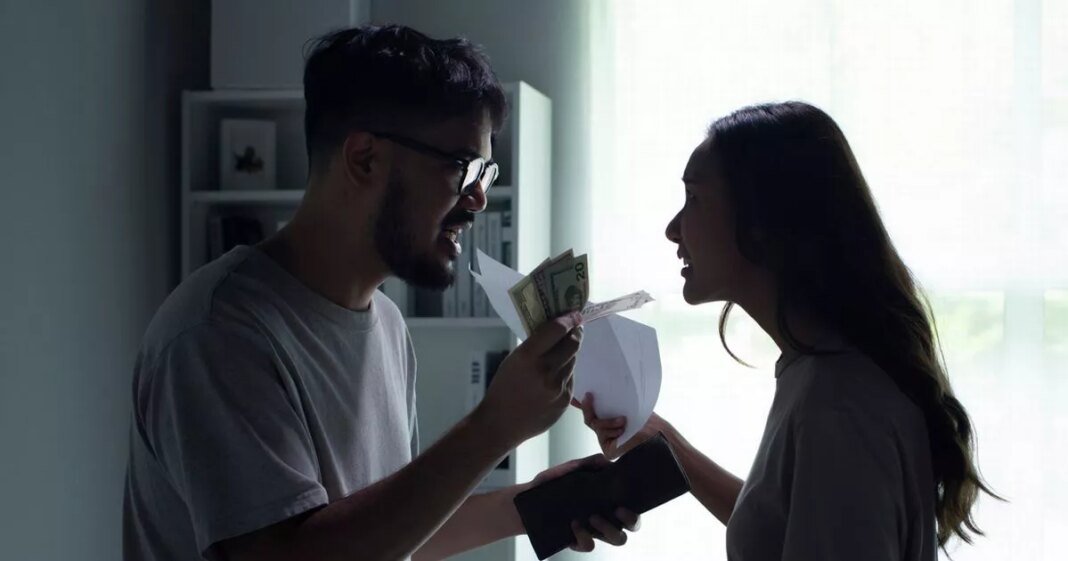Economic abuse is a growing threat to women but female ‘finfluencers’ are fighting back
Economic abuse is a legally recognised form of domestic abuse and new data reveals that it’s a growing threat to women in the UK. According to the charity Surviving Economic Abuse (SEA), 15% of women in the UK experienced economic abuse last year, equating to over four million victims.
Economic abuse is when a partner — or ex-partner — takes control of someone’s access to money, finances and even things that require money such as education, clothing, transport, food and shelter. This makes one partner economically dependent on the other, limiting their freedom and ability to leave the relationship.
The revelation that one in seven women in the UK experienced economic abuse in 2024 has caused a stir within the so.what.community, an online safe space for women to share their problems and dilemmas, eliciting mixed feelings. Some anonymous Instagram users dismissed the figures, arguing that women’s lack of financial stability is a result of their own frivolous spending habits.
One commenter writes: “Have you heard the expression ‘Pull a pig’? 6/10 girls. Stop spending money on fake hair, lip fillers, eyelashes, eyebrows, nails, men don’t care, women do that for themselves. But then the rent and mortgage needs to be paid, men are left holding the cards.”
Hope Flynn, the founder of so.what clarified the severity of the situation and responded to the anonymous backlash, writing: “I think some of us are getting side-tracked by the severity of this. Stats like this are especially terrifying for women because it can keep them stuck in abusive relationships with no way out.
“It takes away their independence, leaves them struggling to get back on their feet and makes even escaping feel impossible. Without money or resources, they’re left with little control over their own live which is exactly what the abuser wants. It’s nothing to do with hair, nails, lip filler. Lets not get side-tracked here,” Flynn concluded.
Many found the negative responses to the data “telling and terrifying”. One commenter attributed the backlash of negativity to men’s jealousy of women, writing: “Wish I hadn’t read now, these guys hold such an old fashioned and dangerous mentality. Why is it on the rise so much now, or they just get braver to air it. Ffs I give up, dating is hard enough with trying to prove you aren’t some sweaty little incel that holds these views. Truth is women do most things better and we are just jelly of that”.
Finances are undoubtedly a key concern for women when it comes to dating and their willingness to enter long-term partnerships or marriages. It’s no surprise considering the consequences of entering and leaving an economically abusive relationship can be a lifetime of financial instability, due to crippled credit ratings and large amounts of debt. This make makes financial literacy more important than ever for women.
Enter the female ‘finfluencer’. Female finfluencers have been a growing group since the early 2020s, launching TikTok channels and podcasts to empower women to grow and protect their personal finances. Most importantly, these influencers are sharing financial advice with a dose of sympathy.
Influencers like Chelsea Fagan of The Financial Diet and Emilie Bellet of VestPod are two of the most popular gurus. Bellet founded VestPod in London in 2016 with the goal of breaking taboos around money and enabling women “to be more financially independent, to live their lives on their terms, while feeling secure and confident about their present and future.”
In addition to speaking events, Bellet hosts an award-winning podcast, The Wallet, which is branded as “jargon and judgment free”. Economic abuse rarely happens in isolation, according to SEA, and often occurs in tandem with physical, psychological and mental abuse.
If you or someone you know is in immediate danger, call the police at 999. If you are not in immediate danger but have concerns about your safety, these domestic abuse helplines are here to support you.
Get our money-saving tips and top offers direct to your inbox with the Mirror Money newsletter

